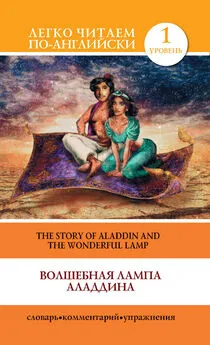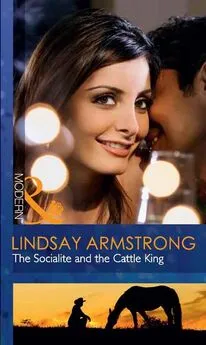Jean Plaidy - To Hold the Crown: The Story of King Henry VII and Elizabeth of York
- Название:To Hold the Crown: The Story of King Henry VII and Elizabeth of York
- Автор:
- Жанр:
- Издательство:неизвестно
- Год:неизвестен
- ISBN:нет данных
- Рейтинг:
- Избранное:Добавить в избранное
-
Отзывы:
-
Ваша оценка:
Jean Plaidy - To Hold the Crown: The Story of King Henry VII and Elizabeth of York краткое содержание
To Hold the Crown: The Story of King Henry VII and Elizabeth of York - читать онлайн бесплатно полную версию (весь текст целиком)
Интервал:
Закладка:
So they went and while they were playing a barge drew up at the river bank. Henry dropped his racquet and ran to see what this meant.
“What news?” he cried. “What news?”
“I must see the King,” said the messenger.
“I am the Duke of York,” said Henry.
“My lord.” The man bowed. “I must see the King with all speed.”
Henry was sullen. His squire was watching. He had thought the messenger would be so impressed by meeting the son of the King that he would immediately tell his business. But it was not so.
One of the King’s attendants had seen the messenger approaching and came hurrying out.
“I have news for the King,” said the messenger.
“Come this way.”
Henry followed. The King, aware of the arrival of the messenger, was already in the hall. The man approached him and fell on to his knees.
“Your Grace. The Infanta of Spain is in England. She has arrived at Plymouth.”
“Good news! Good news!” said the King. “We must thank God for her safe arrival.”
He noticed his son standing there but gave him no greeting.
Then he said: “I will go to tell the Queen this good news.” And to the messenger: “Go to the kitchens where you will be refreshed.”
Henry looked after his father as he left the hall.
He felt angry and frustrated. Arthur would be summoned. This was his bride.
Oh why did I have to be the second son? he thought, with more bitterness than usual. He wanted a bride. He wanted a marriage. It was true he was only ten—but he was so advanced for his age.
It was maddening, frustrating. He would have suited the occasion so much better than pallid Arthur.

He was excited when a short while after he was summoned to his father’s apartment.
When he arrived his mother was already there.
He went forward and bowed as he had been taught to do. He noticed his mother’s eyes on him with a certain pride and satisfaction which pleased him.
“Henry,” said the King, “there are going to be some splendid celebrations. This marriage with Spain is very dear to my heart and to that of your mother.”
The Queen nodded in agreement. She would always agree with her husband.
“Your brother Arthur is a very fortunate young man,” said the King.
Henry smiled almost imperceptibly. Arthur was in Wales and Henry wondered how he would receive the news of his good fortune. He was now fifteen, pale and more like his father than his mother; he was gentle, hated great ceremonies in which he had to play a part, and he would be very apprehensive about those which would inevitably be the result of his “good fortune.”
“The Infanta is on our shores. There can be no hitch now. The marriage will most certainly take place and when it does we shall have a powerful ally. This is a happy time for us all.”
“Henry will have his part to play,” said the Queen, smiling at him.
The color rose to Henry’s cheeks touching the normal healthy pink to rosy red—the color of a Lancaster rose. His eyes sparkled. He was going to enjoy these celebrations if he could forget that they were for Arthur’s wedding, for Arthur’s bride, and that Arthur would be at the center of them.
“And,” went on the Queen, still smiling, “I am sure he will play it well.”
“What must I do?” asked Henry eagerly.
“I have decided that you shall bring the Infanta into London. You shall be her escort companion when she enters the capital.”
“Oh thank you, my lord.”
“You are pleased?” said the King.
“Oh yes, indeed I am. I would I could do more.”
“That will be enough,” said his father. He was trying not to compare the boy with Arthur. Henry was tall for his age and he had bulk too. His skin was glowing with health; he was vigorous and excelled at games, archery, horsemanship; and Skelton said he was good with his books too. He should have been the firstborn, of course. But they had Arthur. The King was fond of his eldest son in a way which he had not believed he could be fond of anyone. Arthur was so vulnerable. In Arthur he saw something of himself. Long ago Henry had dreamed of kingship. In his Welsh stronghold his uncle Jasper had primed him, and the thought had been constantly with him in exile: “One day you will be King.” It had seemed the ultimate goal, the end of the road. Now it was here he was tortured by anxieties, not knowing from one day to the next when some Pretender would arise to claim the crown on which he seemed to have such a light hold. Arthur was uneasy too. Prince of Wales . . . accepted successor . . . and the longer Henry remained on the throne the more firm his seat would be. But he could see that Arthur was afraid of the future, even as he was. Arthur did not want this grand marriage; he did not want the crown.
Had it been young Henry, how different it would have been.
“Very well my son,” said the King, “you must prepare yourself for this duty. You will have to ride through the streets of London with the Infanta. I know you can manage your horse as well as our best knights. But it will be more than that. You will have to treat her with the utmost courtesy. Remember she is a Princess of Spain and she will be one day Queen of England. Now you will show her the utmost respect. I do not know yet how you conduct yourself with the ladies.”
“I am very gallant with them, my lord.”
The Queen’s lips curved in a smile but the King regarded his son sternly.
“You have a good opinion of yourself, Henry.”
“One must have, my lord, for if one has not a good opinion of oneself who else would have one?”
That was pure Skelton. It amused the Queen but the King showed no sign of mirth.
“A little more than gallantry will be required,” said the King. “I will have you taught what you should do. The Infanta has to come from Plymouth. That is a long way off so you will have plenty of time to learn how to conduct yourself. Now you may go. We have matters to discuss which do not require your presence.”
He left a little dispirited in spite of the prospect ahead.
He went to the nurseries. His sisters Margaret and Mary were there. Margaret was drawing and Mary, watching her, was saying it was beautiful and Margaret was very clever.
Mary was so young and naively admired her brother and sister so much because they could do things which she could not.
Margaret said: “Have you seen the messenger?”
“I have been with our father,” replied Henry grandly.
“Oh Henry . . . have you really!” cried Mary. “What did you talk about?”
“This coming marriage,” said Henry importantly. “The Infanta is at Plymouth. She will have to be met and brought to London. I suppose I shall have to lead her into the city.”
“A little boy of ten!” cried Margaret.
“I tell you I am going to do it. I have just told our father that I will.”
“She is grown up. She is sixteen . . . even older than Arthur. You will look such a baby beside her.”
There were times when he would have liked to strike Margaret. There would be terrible trouble if he did. It would be quite against the rules of chivalry. They might even prevent him from taking part in the wedding celebrations, so he kept his temper, which was not easy.
“I shall look what I am—a Prince of England,” he said.
“Well I think you will look very silly,” said Margaret.
“I think you will look nice,” murmured Mary who always took his side when she was there.
“I shall look just as a Prince should look and the Infanta will wish that I was the one she is to marry.”
That made Margaret laugh still louder. “ You marry. . . . That won’t be for years. I am to be married soon.”
“Into Scotland. It is a land of barbarians.”
“I shall be the Queen of Scotland.”
“I hate the Scots,” declared Henry.
“You will have to learn to love them when they are part of our family . . . through this marriage.”
“At least,” said Henry his eyes narrowed to slits, “I shall be grateful to the King of Scotland for taking you away.”
“And I shall be grateful to him for relieving me of your company.”
“Please don’t quarrel.” Mary had slipped her hand into that of Henry. “It’s so exciting . . . with Arthur’s wedding and then Margaret’s . . . don’t spoil it, Henry, please. . . .”
He stooped and kissed the beautiful little face turned up to his. Mary flushed with pleasure and Henry’s good humor was restored.
“Come with me, Mary,” he said. “And I’ll tell you all about what I shall do when the Infanta comes to London. I am to lead her in. You may be able to see me. Let’s leave Margaret . . . and we’ll sit together . . . and talk.”
Mary nodded. Margaret watched them with a curl of her lips.
“Boast away,” she shouted. “All the boasting in the world won’t make you the Prince of Wales. You’ll never be the King . . . though that’s what you want. You’re wicked. You wish Arthur was dead . . . yes, you do . . . yes you do. . . .”
Henry turned and looked at her; for once his rage was cold rather than hot.
“How dare you say such a wicked thing!” he cried.
“I didn’t mean it,” said Margaret, suddenly contrite. It was unlucky to talk of death outright in such a way. Many times she had heard the vague comments of the attendants, the innuendos about Arthur’s not making old bones . . . but that was different.
She should not have mentioned Arthur’s dying. What if Henry told their parents!
Henry said: “Come on Mary. We will leave this wicked girl alone.”
Margaret, subdued, muttered something and turned away and Henry and Mary went to the window seat and sat down.
He started to tell her what a glorious pageant it would be. He described others he had seen but this one would be different because he would be at the center of it.
Suddenly Mary said in a whisper: “If Arthur died would you marry the Infanta, Henry?”
“Hush,” he said. “You must not speak of death.”
Then he went on to describe what he thought the wedding would be like and when he did so he was not seeing Arthur as the bridegroom, but himself, miraculously grown a little older, as old as Arthur . . . old enough to be a bridegroom.
The picture made him very excited. It was nonsense, of course, just a dream, a fantasy; but it was very enjoyable.
And oddly enough he could not dismiss it from his mind.

When the Spanish Infanta stepped ashore at Plymouth with her duenna beside her, she was warmly received by the dignitaries of Plymouth. They had been warned of her arrival and had been awaiting it for several days and when the ship appeared on the horizon the call had gone up: “The Spanish Princess is here.”
The King had given orders that she was to be royally entertained. He would be sending Lord Brook the steward of the royal palace to look after her; he himself could not be expected to make the three-week journey to Plymouth, but he was determined that she should be entertained in accordance with her rank and that her parents should have nothing to complain of in the treatment she received in her new country.
Catalina herself was bewildered. It had been a frightening journey although she had set off from Granada in May and had not embarked at Corunna until August; but even then the ship in which she had set out had been forced back to the coast of Castile because of gales and storms. She had been so ill when she landed that she had not been able to set out again until September. Then her father had ordered that the finest ship he owned—one of three hundred tons—should be put at her disposal. This was a great deal more comfortable than the previous vessel and on the second of October when Plymouth was sighted, Catalina felt that she had been traveling for months.
Читать дальшеИнтервал:
Закладка:










